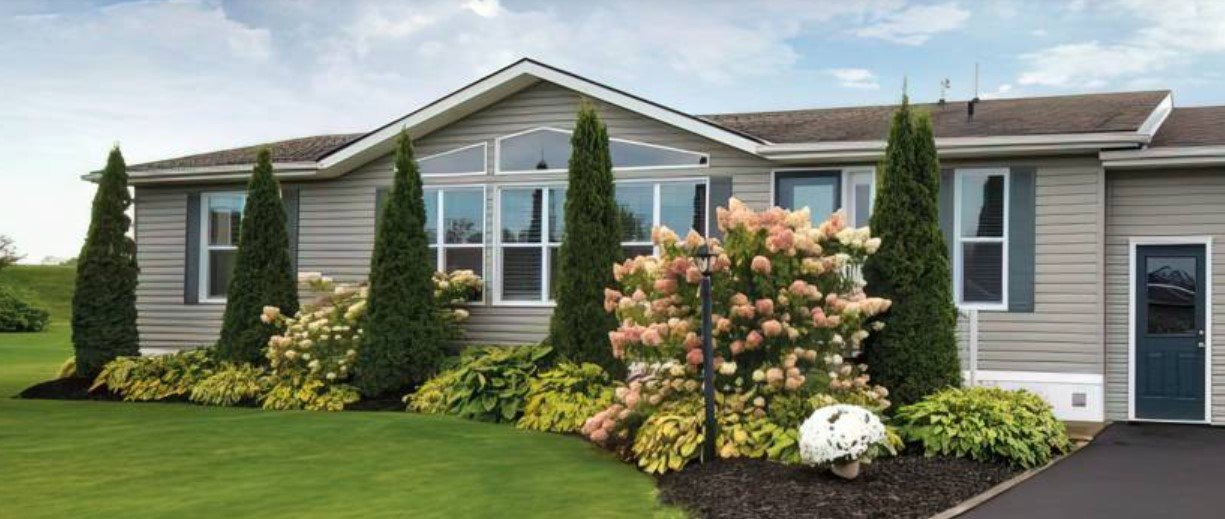Credit Unions that Finance Manufactured Homes
Manufactured homes are an affordable alternative to traditional homes, offering many people the opportunity to own their property at a fraction of the cost. However, securing financing for a manufactured home can be tricky, as not all lenders are willing to finance these properties. Credit unions, known for their member-centric approach and favourable loan terms, are a great option for financing manufactured homes. In this article, we’ll explore how credit unions offer manufactured home loans and the benefits they provide.
What are Manufactured Homes?
Manufactured homes, often referred to as mobile homes, are built in factories and transported to the property site. Unlike traditional homes built directly on land, manufactured homes must meet the US Department of Housing and Urban Development (HUD) standards for safety and construction. These homes are often more affordable than site-built houses but still offer modern amenities and comfortable living spaces.

Why Choose a Credit Union for Financing?
Credit unions are financial cooperatives owned by their members, meaning their primary goal is to serve the best interests of their community. This member-first approach often results in lower interest rates, flexible loan terms, and more personalised service compared to traditional banks. For those seeking manufactured home financing, credit unions can be a viable option because they tend to offer:
Lower Interest Rates: Credit unions typically provide lower rates on loans compared to commercial banks.
Flexible Terms: They are more likely to work with borrowers to create customised loan terms that fit their budget.
Member Benefits: Since credit unions are nonprofit organisations, profits are reinvested into providing better services and lower fees for members.
Local Knowledge: Credit unions often have a better understanding of local property markets and can offer insights that larger institutions may overlook.
How Credit Unions Finance Manufactured Homes
Financing a manufactured home differs slightly from financing a traditional home. Lenders typically view manufactured homes as personal property rather than real estate, which affects the type of loan available. Credit unions, however, often provide several options:
Chattel Loans: These loans are designed specifically for movable personal property, such as manufactured homes not permanently affixed to land. Credit unions may offer competitive rates on chattel loans, but these loans tend to have shorter terms and higher interest rates compared to traditional mortgages.
FHA Loans: Some credit unions work with the Federal Housing Administration (FHA) to offer loans insured by the government. These loans typically require lower down payments and can be more flexible regarding credit scores.
Conventional Mortgage Loans: If the manufactured home is affixed to land (and considered real estate), some credit unions may offer conventional mortgage loans with standard interest rates and terms.
Land and Home Packages: Credit unions may also offer financing for both the manufactured home and the land it sits on, often through a bundled loan or a construction loan if the home needs custom setup.
How to Qualify for a Manufactured Home Loan from a Credit Union
While each credit union may have its own specific criteria, there are a few common factors that most lenders will evaluate when considering your application:
Credit Score: As with any loan, a good credit score will make you more likely to receive better loan terms. However, many credit unions are more lenient than traditional banks.
Down Payment: Expect to provide a down payment, usually around 5-10%, though this can vary based on the loan type and credit union policies.
Income and Employment: Credit unions will want to verify your income and employment stability to ensure you can repay the loan.
Location: Some credit unions may only offer manufactured home loans in certain regions or states, so it’s essential to confirm whether your property location is eligible.
Finding the Right Credit Union
Not all credit unions offer manufactured home financing, so it’s important to research and find those that do. Below are a few ways to start your search:
- National Credit Unions: Some larger credit unions, such as Navy Federal Credit Union and Alliant Credit Union, offer loans for manufactured homes across the country.
- Local Credit Unions: Many local credit unions provide loans tailored to the needs of their specific communities. It’s worth contacting credit unions near you to inquire about their financing options.
- Online Research: Visit credit union websites and look for their loan offerings. Some will clearly list manufactured home financing, while others may require a call to confirm.
Benefits of Credit Union Manufactured Home Financing
- Lower Fees: Many credit unions charge fewer fees or lower closing costs compared to traditional lenders.
- Flexible Loan Terms: Credit unions tend to work more closely with their members, offering flexibility on loan terms and conditions.
- Community Focus: Borrowing from a credit union keeps your money within your community, supporting local growth.
Conclusion
If you’re considering purchasing a manufactured home, credit unions can be an excellent source of financing due to their lower interest rates, flexible terms, and member-first philosophy. By researching the options available at both national and local credit unions, you can find a loan that meets your needs and helps you achieve homeownership at an affordable cost.
Frequently Asked Questions (FAQs)
1. Can I finance a manufactured home through any credit union?
No, not all credit unions offer financing for manufactured homes. It’s important to research and contact credit unions that specifically offer loans for manufactured homes.
2. What is the difference between a chattel loan and a traditional mortgage?
A chattel loan is used for movable personal property, such as a manufactured home not permanently attached to land, whereas a traditional mortgage is used for real estate, including homes affixed to land.
3. How much down payment is required for a manufactured home loan from a credit union?
Down payment requirements vary by credit union, but typically range between 5-10% of the home’s value.
4. Are interest rates lower at credit unions compared to banks?
Yes, credit unions often offer lower interest rates on loans compared to traditional banks because they are nonprofit organisations focused on serving their members.
5. Can I get a loan for both the land and the manufactured home?
Yes, many credit unions offer bundled loans or construction loans that finance both the land and the manufactured home.
6. What are the benefits of financing through a credit union versus a bank?
Credit unions generally offer lower interest rates, fewer fees, more flexible loan terms, and a more personalised service than traditional banks.
7. Do credit unions require good credit to finance a manufactured home?
While credit requirements vary, credit unions may be more flexible than traditional lenders, often considering factors beyond just the credit score.
